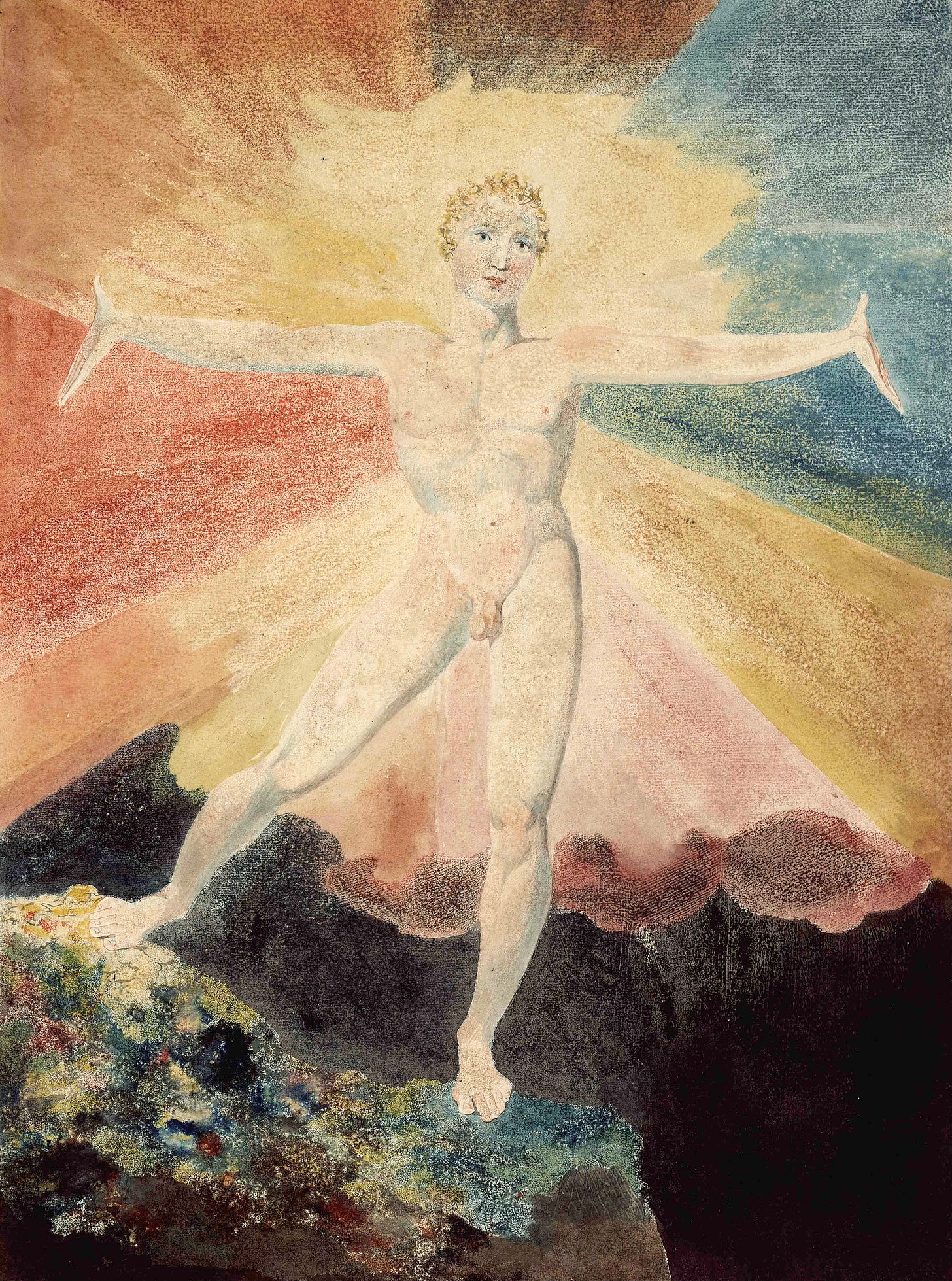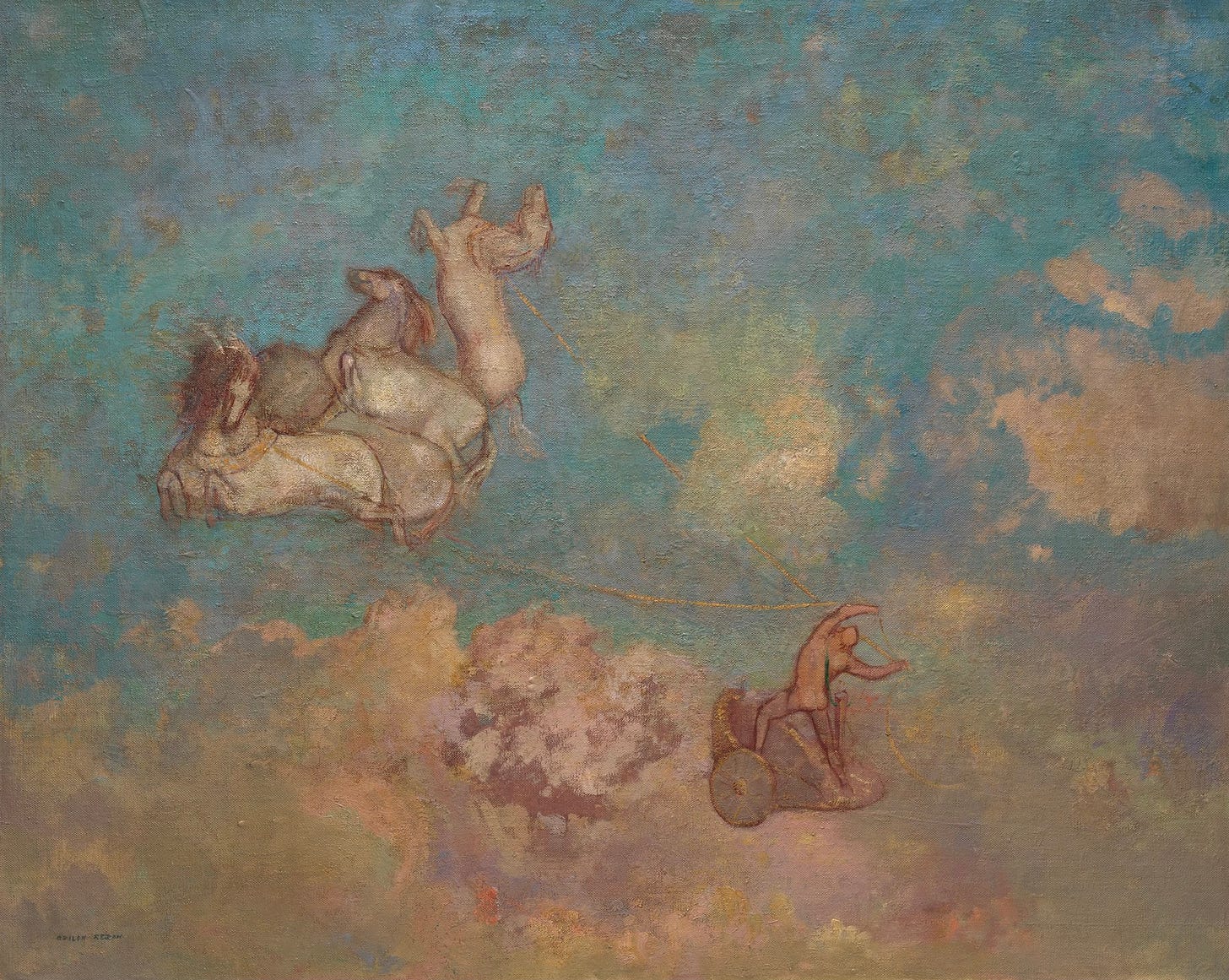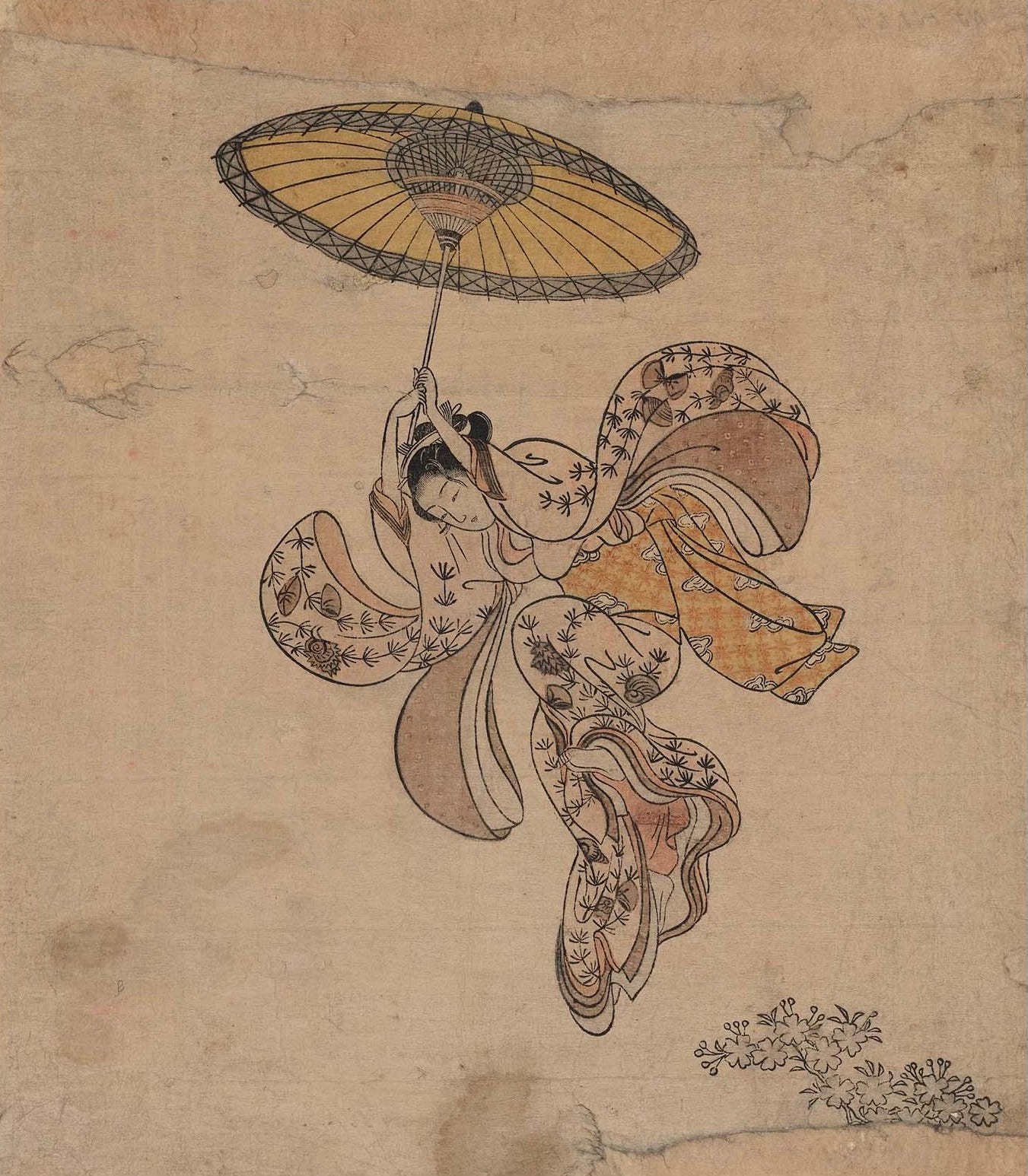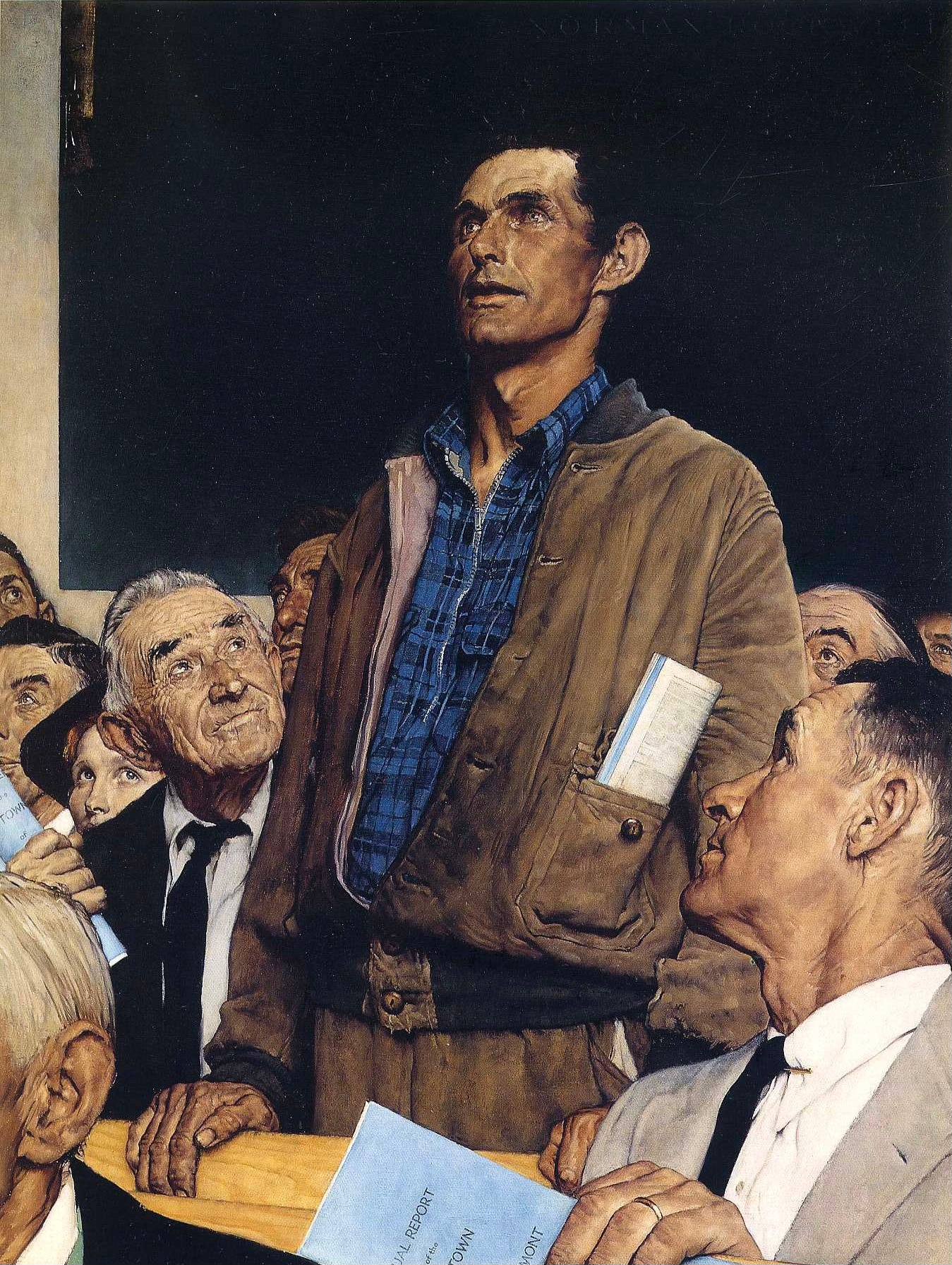Selected from the Spring 2023 issue of Lapham's Quarterly.

Strike down liberty, no matter by what subtle and infernal art the deed is done, the spinal cord of humanity is sundered and the world is paralyzed by the indescribable crime.
–Eugene V. Debs, 1895
Through the long ages of grinding slavery behind us, freedom, that unknown goal of human pilgrimage, has hovered, a veiled splendor, upon the horizon of men’s hopes.
—Charlotte Wilson, 1886
What man wants is simply independent choice, whatever that independence may cost and wherever it may lead. And choice, of course, the devil only knows what choice.
—Fyodor Dostoevsky, c. 1860
The most stringent protection of free speech would not protect a man in falsely shouting fire in a theater and causing a panic.
—Oliver Wendell Holmes Jr., 1919
In the autumn stillness, when the cold, sullen mist that rises from the earth lies like a weight on the heart, when it stands like a prison wall before the eyes, and reminds man of the limitation of his freedom, it is sweet to think of the broad, rapid rivers, with steep banks wild and luxuriant, of the impenetrable forests, of the boundless steppes.
–Anton Chekhov, 1886
When the people move for liberation, they must have the basic tool of liberation: the gun.
—Huey P. Newton, 1967
Consider the first-mentioned lie: that there is such a thing in the world as independence; that it exists in individuals; that it exists in bodies of men. Surely if anything is proven, by whole oceans and continents of evidence, it is that the quality of independence was almost wholly left out of the human race. The scattering exceptions to the rule only emphasize it, light it up, make it glare.
—Mark Twain, c. 1884
True freedom can exist only when those who produce, not those who destroy or know how to live only on another’s labor, are the masters.
—Chakravarti Rajagopalachari, 1922
Art is individualism, and individualism is a disturbing and disintegrating force. Therein lies its immense value. For what it seeks to disturb is monotony of type, slavery of custom, tyranny of habit, and the reduction of man to the level of a machine.
—Oscar Wilde, 1891

Many there be that complain of divine Providence for suffering Adam to transgress. Foolish tongues! When God gave him reason, he gave him freedom to choose, for reason is but choosing; he had been else a mere artificial Adam, such an Adam as he is in the motions.
—John Milton, 1644
For a truly sincere life one talent is needed—the ability to steer clear of the forces that would warp and conventionalize and harden the personality and its own free choices and bents.
–Randolph Bourne, 1913
In sundry moods, ’twas pastime to be bound Within the Sonnet’s scanty plot of ground: Pleased if some Souls (for such there needs must be) Who have felt the weight of too much liberty, Should find brief solace there, as I have found. –William Wordsworth, c. 1807
Man may freely go so far as to say: all excellence whatever and all orders of prayer whatever, in body or in spirit, are in the realm of free will, as well as the mind that dominates the senses. But when the influence of the spirit reigns over the mind that regulates the senses and the deliberations, freedom is taken away from nature, which no longer governs but is governed.
—Isaac of Nineveh, c. 680
“Upon this account,” said he, “O Diogenes, it is in your power to converse as you will with the Persian monarch and with Archidamus, king of the Spartans.” Was it because he was born of free parents? Or was it because they were descended from slaves—that all the Athenians, Spartans, and Corinthians could not converse with them as they pleased, but feared and paid court to them? Why, then, is it in your power, Diogenes? “Because I do not esteem this poor body as my own. Because I want nothing. Because this and nothing else is a law to me.” These were the things that enabled him to be free.
—Epictetus, c. 108

Come, ye disconsolate, in whom any latent eligibility is left—come get the sure virtues of creek shore, and wood and field. Two months have I absorbed them, and they begin to make a new man of me. Every day, seclusion—every day at least two or three hours of freedom, bathing, no talk, no bonds, no dress, no books, no manners.
—Walt Whitman, 1877
Until we give up the thirst after life, the strong attachment to this our transient, conditioned existence, we have no hope of catching even a glimpse of that infinite freedom beyond.
—Vivekananda, 1896
The division of labor brought about by the system is not a division based on choice. Individual sentiment, individual preference, has no place in it. It is based on the dogma of predestination. Considerations of social efficiency would compel us to recognize that the greatest evil in the industrial system is not so much poverty and the suffering that it involves, as the fact that so many persons have callings which make no appeal to those who are engaged in them.
—B.R. Ambedkar, 1936
You might as well expect the rivers to run backward as that any man who was born a free man should be contented when penned up and denied liberty to go where he pleases.
–Chief Joseph, 1879
But there is one common bulwark that the instinct of sensible men possesses within itself, a good and safe one for all, but invaluable for democracies against tyrants. And what is that bulwark? It is mistrust.
—Demosthenes, c. 344 BC
I cannot regard that our rights will be secured until the jury-box and the schoolroom, those great palladia of our liberty, shall have been opened to us.
—Richard Harvey Cain, 1874
In fact, every principle of liberty enunciated in any civilized country on earth, with very few exceptions, was intended entirely for men, and when women tried to force the putting into practice of these principles for women, they discovered they had come into a very, very unpleasant situation indeed.
–Emmeline Pankhurst, 1913
The caged bird owes no allegiance; The wind-tossed flower does not cling to the tree. –Bai Juyi, c. 830

Believe me—and I have spent a great part of the past ten years in watching some 320 elementary schools—we may prate of democracy, but actually a poor child in England has little more hope than had the son of an Athenian slave to be emancipated into that intellectual freedom of which great writings are born.
–Arthur Quiller-Couch, 1913
Lastly, from the use of the word free will, no liberty can be inferred of the will, desire, or inclination but the liberty of the man, which consists in this: that he finds no stop in doing what he has the will, desire, or inclination to do.
—Thomas Hobbes, 1651
How well the cry for liberty and the reverse disposition for the exercise of oppressive power over others agree—I humbly think it does not require the penetration of a philosopher to determine.
—Phillis Wheatley, 1774
There is nothing that is as funny a joke throughout the world, at the present time, as the so-called American freedom. No country is as free as it was before we fought to make the world free for democracy, but there is no country that does not regard itself as free in comparison with the United States.
–Channing Pollock, 1930
But when the empire of America shall fall, the subject for contemplative sorrow will be infinitely greater than crumbling brass or marble can inspire. It will not then be said, Here stood a temple of vast antiquity; here rose a Babel of invisible height; or there a palace of sumptuous extravagance; but here, ah painful thought! the noblest work of human wisdom, the grandest scene of human glory, the fair cause of freedom rose and fell!
–Thomas Paine, 1789
Lapham’s Quarterly is a project of the American Agora Foundation, which is dedicated to fostering an appreciation of, and acquaintance with, the uses and value of history. Please help us continue our work. Donate today.
FREEDOM
Spring 2023



